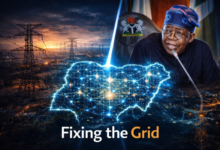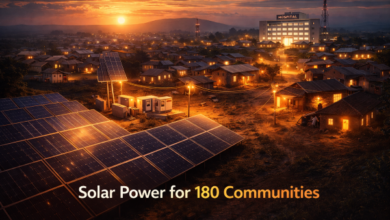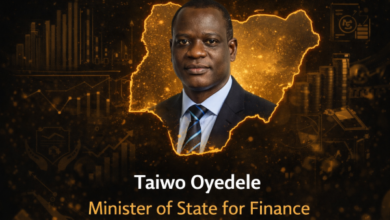ECOWAS agency to ensure sustainable energy in W/Africa by 2030 – Official
 Mr Francis SIMPORE, Executive Director, ECOWAS Center for Renewable and Energy Efficiency (ECREEE), says the agency is set to ensure sustainable energy across ECOWAS Member States by 2030.
Mr Francis SIMPORE, Executive Director, ECOWAS Center for Renewable and Energy Efficiency (ECREEE), says the agency is set to ensure sustainable energy across ECOWAS Member States by 2030.
SIMPORE made this known on Wednesday in Abuja, during a joint news conference with the Ministry of Power, ahead of the ECOWAS Sustainable Energy Forum (ESEF) 2022.
According to the ECREEE official, the ESEF, scheduled to hold in Abuja between Oct. 31 and Nov. 1, seeks to bring together key stakeholders in the energy sector to discuss and proffer solutions to the energy challenges in some member states.
“So the first objective of the ESEF 2022 is to inform and sensitise all stakeholders on the progress made by ECOWAS, by highlighting the role of each one.
“Secondly, it is to highlight the obstacles and how we are going to overcome these obstacles; and we are also going to share the best practices and innovations in sustainable energy.
“Finally, we will discuss how we can stimulate the economic sector through the use of renewable energy and energy efficiency,” SIMPORE said.
Throwing more light on the event and issues, Mr Hyacinth Elayo, Policy Officer, ECREEE, said the forum would bring together diverse groups from within and outside the region, as well as the private sector, which according to him, plays a critical role.
Elayo said that the ESEF 2022 would also harp on how West African countries could ensure a smooth and safe energy transition in 2030 to low carbon energy, in line with the Sustainable Development Goal 7 (SDG 7)
“We have a pressing energy crisis that is unfolding as we speak. So we will address the immediate energy concerns and how we can get power energy and electricity to our people.
“You know, roughly 50 per cent of the population still do not have any access to energy, modern energy services and the benefits which that provides. So we have to address that frantically.
“But going forward, there has to be a steadfast effort as well, looking at the mid-term, long-term plans.
“There is the energy security issues that we are facing, high oil prices, and of course, the urgency of the climate change catastrophe that is unfolding before our eyes,
“So while we address these issues that face us today, it is critical that we make conscious efforts towards transition.
“How we can have more clean energy sources installed, how we can increase the share of renewable in the overall energy mix going forward, and that this exercise is not just a benefit, it makes economic sense as well.
“There have been studies by UNDP that shows that if we are able to transit, it has the benefits of protecting the environment for the future generations.
“It also has a multiplier effect on the economy and it creates jobs; so that makes a real case for ensuring that we also address the transition aspects.
“I think we can walk and chew gum at the same time. Let us address the incision that is occurring.
READ ALSO:https://brandeconomy.com.ng/empowerment-oba-donates-n5m-to-benin-community-in-abuja/
“Let us utilise all the resources that we are endowed with, which can be natural gas, solar, wind, hydro and bio-energy, to ensure that we transit and we have cleaner energy trajectory going forward.
“The idea is that by 2030, ECOWAS region would have attained universal access to energy,” Elayo said.
On his part, Mr Abubakar Dapshima, Director, Renewable Energy and Rural Power Access in the ministry, said government was working towards a safer energy transition and putting things in place to transit by promoting renewable energy in large scale.
“When we talk of energy transition, we want to transit from the normal conventional way that we generate electricity to a more carbon friendly energy generation and efficiency.
“The ministry is actually putting things in place to transit, by promoting renewable energy in large scale in the area of hydro power,” Dapshima said.
The News Agency of Nigeria (NAN), reports that the ESEF 2022 has as theme: “Achieving Sustainable Energy Targets in the ECOWAS Region: Moving From Resilience to Transition.”
(NAN)












